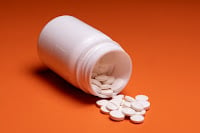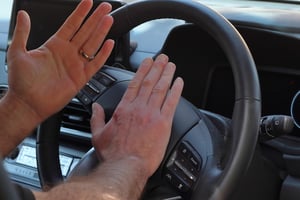Stimulants Do Not Cause Psychotic Experiences in Children and Adolescents, Study Finds

A study issued yesterday in Pediatrics did not identify a causal link between stimulant prescriptions and psychotic experiences (subclinical hallucinations and delusions) among youth between ages nine and 14 years.
“[O]ur findings suggest that although there is an increased risk of psychotic experiences in children and adolescents who are prescribed stimulant medication, this increased risk is driven by patient characteristics rather than by stimulant treatment itself,” wrote Kirstie O’Hare, Ph.D., of the University of Edinburgh, and colleagues.
O’Hare and colleagues emulated a randomized clinical trial using observational data from 8,391 youth (50% female) enrolled in the Adolescent Brain Cognitive Development Study between the ages of nine to 14. During annual assessments, caregivers reported what medications the youth started in the previous year while participants self-reported psychotic experiences using the Prodromal Questionnaire–Brief. This questionnaire asks about a range of unusual thoughts or feelings and how much distress they are causing.
Overall, about 19% of participants reported one or more psychotic experiences of at least moderate distress at their baseline assessment (most commonly paranoid ideas, auditory hallucinations, and perceiving a supernatural presence), 15% reported one or more psychotic experiences at the one-year follow-up, and 5.5% reported initiating a stimulant prescription between baseline and follow-up.
The researchers found that youth who started stimulant medications were 46% more likely to have psychotic experiences at follow-up. But the reverse was also true: Those who reported psychotic experiences at baseline were nearly twice as likely to subsequently receive a stimulant prescription. When the authors applied rigorous modeling to ensure individuals in the stimulant and non-stimulant groups were evenly matched in sociodemographic variables and medical history, there was no evidence of a causal effect of stimulant prescription on the subsequent occurrence of psychotic experiences. The authors found similar results when they restricted the sample to 3,260 participants who had a parental history of mental illness.
The authors noted that their findings relate to psychotic experiences, not to psychotic disorders. “Psychotic experiences, although associated with an increased risk of psychotic disorders, are below the severity threshold required for a psychotic disorder diagnosis,” they wrote.
“We know that many children with ADHD can benefit from medication treatment,” the study’s lead author, Ian Kelleher, M.D., Ph.D., told Psychiatric News in an email. “The results of our study are reassuring for young people and their families that routine ADHD medication treatment is unlikely to cause psychotic experiences.”
For related information, see the Psychiatric News article “Prescription Amphetamines Boost Risk for New Psychosis or Mania.”
(Image: Getty Images/iStock/ULRO)
Don't miss out! To learn about newly posted articles in Psychiatric News, please sign up here.





